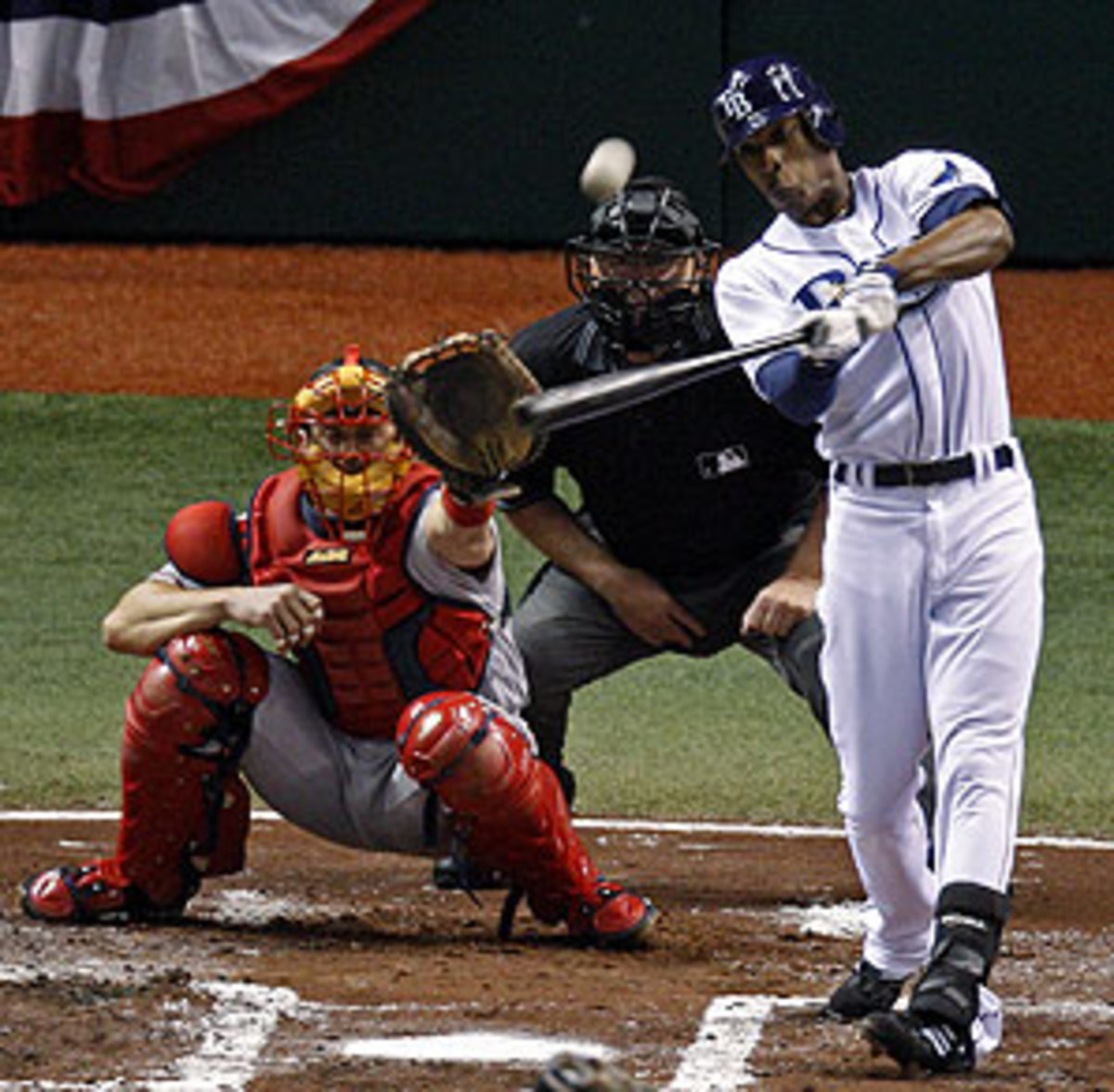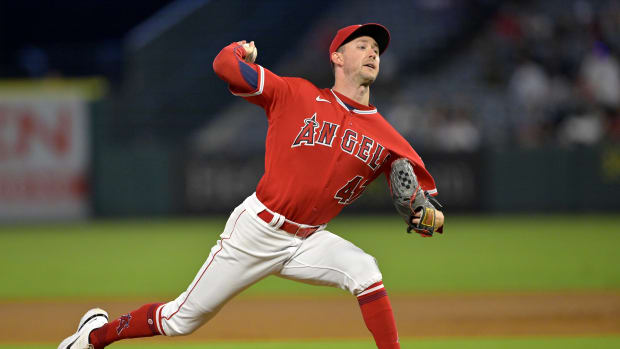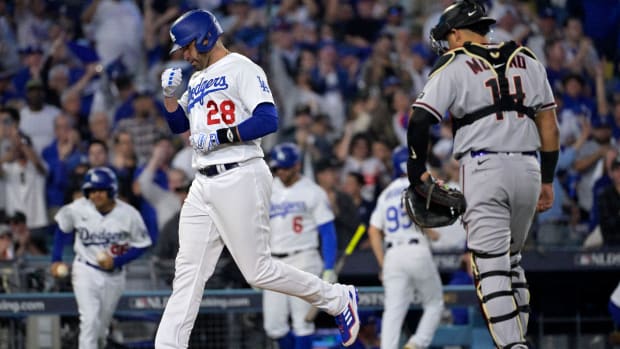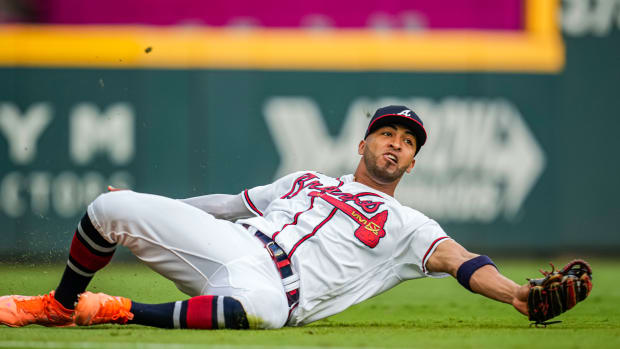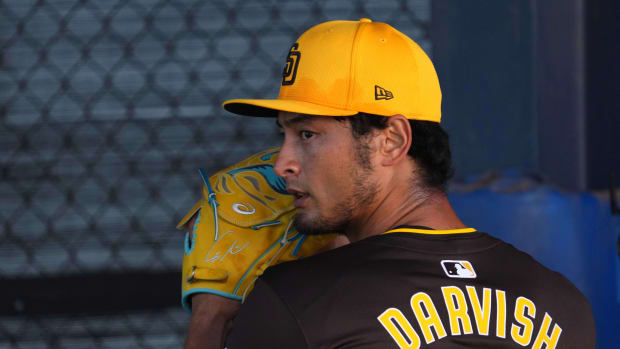What we learned about the Rays
Dissecting the lessons about the American League champion Tampa Bay Rays as they prepare for their first World Series appearance.
During the regular season, the Rays were ninth in the American League in runs per game and eighth in slugging percentage, but they were tied with the Yankees for fourth in home runs, seven dingers ahead of the Red Sox. So far in the postseason, the Rays have out-homered their competition 22 to 14, connecting for two more jacks than the White Sox (one of the three AL teams with more homers than the Rays in the regular season) in the ALDS and six more than the Red Sox in the just-completed ALCS. After 11 postseason games, the Rays are averaging two home runs per game. They're doing all of this despite the fact that just three Rays had more than 13 home runs during the regular season and team leader Carlos Peña had a modest total of 31.
The two major reasons for this home run outburst are B.J. Upton and Evan Longoria, neither of whom is having a particularly fluky postseason. Longoria, who has six home runs this month, hit 27 during the regular season, but after making his major league debut in mid-April, he didn't really find his groove until June and missed a month of the stretch drive with a fractured wrist. Longoria was hitting .237/.313/.426 with seven home runs in 195 plate appearances on June 3. From then through the end of the regular season he hit .294/.361/.595 with 20 more taters in 313 PA. It doesn't take a math wiz to figure out that that's a 40-homer pace over a full season of 626 plate appearances. Similarly, Upton hit just nine home runs all season, but his power was limited by a torn labrum suffered on May 1. Upton hit three home runs in April, 24 last year, and has hit seven in the postseason, one shy of the single-postseason record set by Barry Bonds in 2002 and tied by Carlos Beltran in 2004.
In addition to their 22 home runs, the Rays have stolen 17 bases this postseason. Tampa Bay led the American League in steals this year and had three players with 20 or more in Upton (44), Carl Crawford (25), and Jason Bartlett (20), but those three have combined for just nine of those 17 postseason swipes. The four men responsible for the other eight -- Akinori Iwamura, Evan Longoria, Carlos Peña and Gabe Gross -- combined for just 18 steals during the regular season. Peña and Gross had just three steals in six attempts during the regular season, but have gone 5-for-6 in the playoffs -- and that one caught stealing was actually a pickoff. It's not that these players have gotten faster, it's that the Rays are exploiting every advantage they can. Peña had just 15 steals in his eight-year major league career before this postseason. He's stolen three bases in the playoffs, not through speed but through smarts. He and the Rays coaching staff are taking advantage of every pitcher whose mind wanders on the mound, who fails to play close attention to the baserunner, who's slow to home, or who simply has a terrible move. That's how the Rays have won all year, by exploiting the margins. In the postseason, they're just doing it more often.
Joe Maddon doesn't have his Rays play no-doubles defense. Says Maddon, "You can play no doubles and still give up doubles, you know." He's right.
Joe Maddon doesn't use the sacrifice bunt very often. In fact, no team in the majors bunted less than the Rays this year, not even the A's. Playing for one run typically results in only one run and often in none because the sacrificed out gets the pitcher a third of the way closer to getting out of the inning.
Joe Maddon doesn't have a designated closer. The key at-bats of the game don't always come in the ninth inning, the last three outs aren't always the toughest to get, and the most appropriate pitcher to get the game's key outs differs from situation to situation depending on which batters are due up and whether a strikeout or a double play is what's most needed.
After Game 4 of the ALCS, Maddon was one win away from the World Series with his best starter (James Shields) set to pitch Game 5, but Maddon decided to switch him out for the pitcher (Scott Kazmir) who had struggled in Game 2 because of the location of the games and so as to best set up his team for Games 6 and 7 in the event of an unexpected Game 5 loss. Kazmir held the Red Sox scoreless on two hits over six innings and passed a 7-0 lead to his bullpen. As his closerless bullpen gave up that seven run lead, Maddon didn't have his defense play no-doubles, and it gave up a key eighth-inning double that would result in the tying run. With the game tied in the ninth, he didn't have his leadoff hitter bunt over a leadoff single. That runner didn't score, and the Rays lost the game in the bottom of the ninth. In Sunday night's Game 7, Willy Aybar led off the fifth with a double, putting the tie-breaking run on second base with the bottom of the order due up. Maddon didn't have his catcher bunt Aybar over to third. Instead, a pair of singles drove Aybar home with what proved to be the winning run. As one of Maddon's players told SI.com's Tom Verducci after Game 5, "There's a lot of things we do here that don't seem to make sense, but that's just the way we've always done it." Doing it Maddon's way, the Rays improved by 31 wins this season and survived that flukey Game 5 collapse to make it to the World Series.
Joe Maddon doesn't care what you think, nor should he. His team just won the pennant.
Before this postseason, 13 teams had built 3-1 leads in best-of-seven series only to lose Game 5 and 6. Of those 13, just three had managed to stop the skid and win Game 7. The Rays became the fourth team to accomplish that feat last night. Of the first three teams to do it -- the 1967 Cardinals, 1972 A's and 1992 Braves -- all three returned to the playoffs the following year. The A's would make the playoffs in each of the following three seasons, winning two world championships. The 1992 Braves had just one championship in their future, but would participate in the next dozen postseasons. That speaks to both the talent and the resiliency of those teams, attributes which the Rays have proved to have in abundance this season.
There are other reasons to expect the Rays to be perennial postseason participants beyond the quirk of history that joins the Rays to those A's and Braves teams. The Rays were the second-youngest team in baseball this year and are awash in young talent. Peña and veteran platoon DH Cliff Floyd are the only Rays regulars to have celebrated their 30th birthdays. Longoria will probably win the Rookie of the Year award this year. David Price, who got the win in Game 2 and the save in Game 7, will be a preseason favorite for the award next year. The top overall pick in last year's draft, Price will make a rotation whose oldest member this year was the 26-year-old Shields. Even with those two already in the majors, Rays still have a well-stocked minor league system that is expected to bear more fruit in the coming seasons. In the first winning season in franchise history, the Rays won the toughest division in baseball and are going to the World Series. Imagine what they'll accomplish after they learn how to win.






























